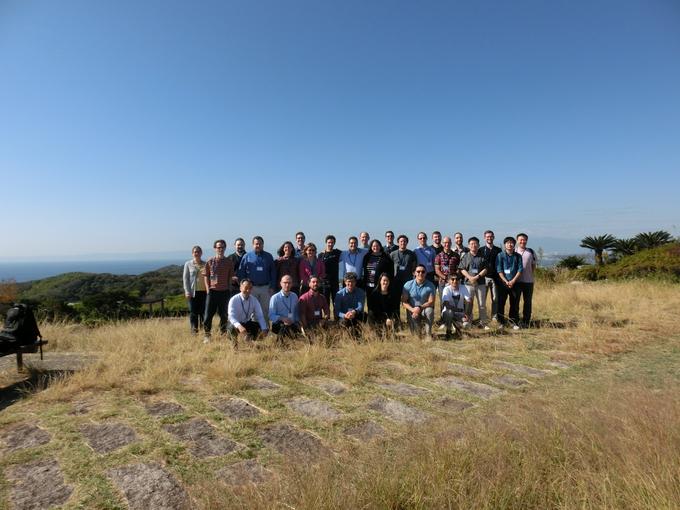NO.204 DevOps for Cyber-physical Systems
November 6 - 10, 2023 (Check-in: November 5, 2023 )
Organizers
- Sebastiano Panichella
- Zurich University of Applied Sciences, Zurich
- Paolo Arcaini
- National Institute of Informatics, Japan
- Myra Cohen
- Iowa State University, USA
- Aitor Arrieta
- Mondragon University, Spain

Overview
Description of the Meeting
Context and goal:
Cyber-Physical Systems (CPSs) combine digital cyber technologies (e.g., software, microprocessors, etc.) with physical processes (e.g., mechanical and electrical components). In many applications, CPSs interact with humans; thus making these CPSs safety-critical. Most of CPS functionality is driven by software, which requires maintenance and evolution to deal with hardware obsolescence, new legislation changes, correction of bugs and inclusion of new functionalities. To better deal with maintenance and evolution, like in many other software domains, DevOps techniques have emerged. However, in the context of CPSs, these new software development techniques are still in their infancy, still requiring ground-breaking research solutions.
To this end, DevOps provides an effective solution for such continuous evolution. DevOps combines development practices and tools to speed up applications and service delivery while ensuring their high reliability. DevOps practices and tools found applications in different domains ranging from traditional systems to mobile applications. In the context of CPS, DevOps is also being considered as a natural choice to cost-effectively support CPS development and evolution. As a consequence, there has been an increasing interest in blending best practices from DevOps solutions with the development processes used in the CPS, to deliver software rapidly and dependably. However, doing so poses new challenges for both contemporary and future CPS development and operation that require developing novel research methods.
Existing DevOps solutions for CPSs suggest gaps that software engineering and CPS communities have to address in the future. Such challenges arise from the complexity and uncertainty of CPS behavior due to the CPS environment and the non-deterministic nature of such systems. Indeed, CPSs often rely on Artificial Intelligence (AI) based and sensor-based components, representing the main sources of non-determinism and uncertainty of CPSs within the operational environment. DevOps tools, with all their practices and expected automation, have a critical goal to enable the rapid and incremental delivery and assessment of CPS-developed software and hardware components, which are synergically used for enabling the effective operation of CPSs in their environment. At the same time, since most of the current behavioral assessment of such systems is based on manual and human-based activities, DevOps innovations have to also target automated ways on how to assess the behavior of CPSs with human-into-the-loop.
Given the relevance and multifaceted complexity of such challenges, it is required to determine the main aspects that need to be tackled by experts from different domains (DevOps experts, software engineering researchers, and CPS researchers/practitioners).
Details of the meeting:
The core part of ongoing DevOps solutions requires advanced development and deployment strategies, which work efficiently and in an adaptive manner in different.
CPS domains while addressing different CPS technical requirements. During the development phase of CPS, it is common to apply different simulation techniques such as Software in the Loop (SiL) and Hardware in the Loop (HiL), e.g., for development and testing of CPS software. For example, HiL consists in establishing techniques used within the development and testing of complex real-time CPS by adding mathematical (or simulation model) representations of all related (physical) dynamics of such systems. Research in the field concerning DevOps automation for CPSs or simply running test cases in DevOps pipelines is still challenging, with development and deployment automation going beyond mere test execution to support HIL activities, which are now required for CPS.
This Shonan meeting will provide a platform to discuss challenges and ideas in all aspects and phases of DevOps in the context of CPSs, including how DevOps can further contribute to improving the efficiency of tomorrow's CPS development and evolution. We will facilitate the discussion along many dimensions of DevOps for CPSs, including DevOps pipelines (e.g., configuration management), functional and non-functional testing (including uncertainty testing), monitoring techniques, uncertainty detection, run-time verification, and maintenance. Moreover, we will discuss existing known techniques such as model-based testing, AI techniques (e.g., search algorithms and other machine learning algorithms), and digital twins.
With this Shonan Meeting, we also aim to generate the first book on DevOps for CPSs. This book will collect challenges, bad/best practices, experiences, tools, gaps, and future directions in the field. This will guide future generations of experts moving forward on DevOps and testing automation for complex CPSs.
Our meeting aims to attract researchers from academia and industry who are experts in DevOps, CPS development, testing and operation, applied AI, and digital twins. The core team of the Shonan Meeting will be researchers and industrial participants from the COSMOS H2020 project (https://www.cosmos-devops.org/) project, researchers and industrial practitioners from the Adeptness H2020 project (https://adeptness.eu/) project, and researchers on DevOps, CPS, AI, and DevOps for CPS from Asia, Europa, Australia, and the USA to cover different geographical areas. Moreover, we will strive to increase the number of practitioners given the topics covered in the meeting.
The meeting will start with an introductory presentation of each participant, followed by detailed presentations from participants about their research related to the meeting's topics, serving as a basis for discussion for the rest of the meeting. The meeting will consist of structured and open discussion sessions to exchange ideas in different settings and will serve as the starting point for writing the planned book. We aim to have an outline of the book before the meeting, with the idea to evolve it during the meeting together with potential contributors of chapters. In addition, we believe this meeting will provide a forum to build international cooperation and joint international projects and publications in the future between different communities.
